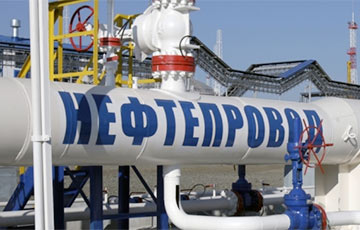Newsweek: Russia Bracing For Painful Blow
11- 15.04.2025, 19:37
- 14,948

Moscow is too dependent on oil and gas exports.
US President Donald Trump's torrent of tariffs may not have affected Russia directly, but it could deal a painful blow to its economy. The problem is that Moscow is dependent on oil and gas exports.
Newsweek writes that the tariffs have already had an impact on Russian oil prices, which fell sharply on April 2 and have not risen since.
“While Trump's tariffs were probably not intended to cause oil prices to collapse, low prices for the “black gold” will have a negative impact on the Russian economy in the long term,” says Kari Liuhto, professor of international business at the University of Turku in Finland. “However, the price of oil would have to remain low for several years to influence the Russian leadership.”
Impact of price caps
US billionaire Ray Dalio has warned that the US is “very close to a recession” due to Trump’s tariffs and stock market turmoil, and could face “something much worse than a recession.”
“The drop in oil prices due to the expected US recession will be significant and will have a big impact on Russia’s oil revenues,” said Eric Golson, an expert on economic warfare and associate professor of economics at the University of Surrey in the UK.
Oil prices have fallen by about 25% compared to last year’s average, Golson said, which would represent an expected $50 billion annual loss in revenue for Russia.
Russia is partly easing the pressure of oil sanctions by selling crude to third countries, which is then purchased by Western countries as refined oil products, Liuhto said. Russian gas to suffer
While oil accounts for the bulk of Russia's revenue, tariffs could also hurt Russian gas exports, particularly LNG.
“Even though America hasn't imposed any tariffs specifically on Russia, this will indirectly impact oil prices and then gas prices. It's gas that will really hurt Russia,” said Aura Sabatus, a junior research fellow at the Royal United Services Institute.
Until 2022, Russia accounted for up to 40% of Europe's gas imports, but now it accounts for around 11%, including LNG, she added. In recent years, other players, such as the US and Qatar, have entered the European market.
Some European players have begun to consider resuming imports of Russian gas once a ceasefire agreement is reached in Ukraine.
Resuming Russian gas supplies to Europe will face many obstacles. These shipments to Europe, as well as American LNG shipments, are reducing demand for Russian exports, Sabatusa said.
However, there are some concerns in Europe as a whole about how much the continent might depend on the U.S. for everything from military capabilities to energy supplies. “The prospects for Russia to send more LNG to Europe — potentially regaining some market share by restarting pipeline exports to Europe — are fading, at least for the foreseeable future,” she concluded.











